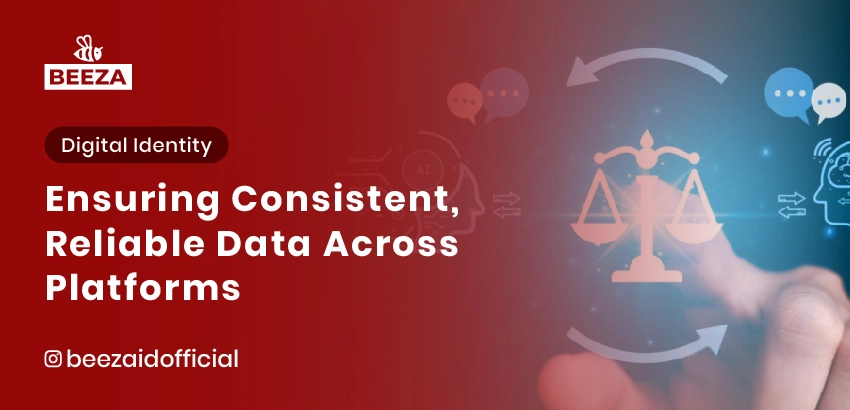
In our highly interconnected digital age, organizations manage vast amounts of data across various systems and platforms. Ensuring data accuracy, consistency, and integrity is vital—especially for industries requiring strict regulatory compliance and robust fraud prevention measures. The Identity Validation and Data Integrity Hub plays a pivotal role in maintaining data reliability at all access points, offering businesses a centralized, secure system to verify identities and protect their data.
Understanding Identity Validation and Data Integrity Hub
The Identity Validation and Data Integrity Hub is a centralized digital infrastructure designed to validate identities, monitor data integrity, and manage access across various systems. By integrating with multiple data sources and platforms, the hub standardizes data, ensures consistency, and keeps information accurate and up-to-date throughout an organization.
Industries such as finance, healthcare, and government benefit significantly from this technology, as data accuracy and identity verification are critical to meeting compliance standards and protecting sensitive information.
Key Benefits of Identity Validation and Data Integrity Hub
1. Enhanced Regulatory Compliance
Industries operating under strict regulatory requirements must store and manage personal data securely. The hub ensures compliance through:
- Automated Data Audits: Regularly audits data, identifying inconsistencies or anomalies that may signal non-compliance risks.
- Integrated Reporting: Simplifies reporting by centralizing data, enabling quick and comprehensive compliance reporting.
- Secure Access Controls: Validates identities and monitors access, ensuring only authorized personnel can view sensitive data, reducing the risk of breaches and non-compliance.
By meeting regulatory standards, businesses avoid costly fines, build client trust, and enhance their reputation.
2. Stronger Fraud Prevention
Identity validation is at the core of effective fraud prevention. The hub cross-verifies identity information across platforms, detecting suspicious discrepancies. Key advantages include:
- Real-Time Alerts: Identifies suspicious activities like repeated access attempts, unauthorized data changes, or document inconsistencies.
- Layered Authentication: Integrates advanced verification methods like biometrics or two-factor authentication for enhanced data security.
- Improved Data Accuracy: Ensures consistent data across systems, preventing fraudsters from exploiting outdated or inaccurate information.
This added layer of security allows businesses to stay ahead of potential fraud threats.
3. Optimized Operational Efficiency
A centralized data integrity hub eliminates fragmented information silos across departments or platforms. Benefits include:
- Reduced Manual Work: Automating data validation processes minimizes the need for manual data entry, reducing human errors.
- Consistent Data Across Systems: Ensures all systems reflect accurate, consistent information, avoiding reporting errors.
- Improved Customer Experience: Maintaining data integrity enables businesses to respond to customer needs effectively, leading to faster service delivery and better satisfaction.
4. Seamless Data Integration
The hub is designed for effortless integration with other systems, creating a unified data ecosystem. Integration advantages include:
- Cross-Platform Synchronization: Ensures synchronized data across platforms, enabling decisions based on the latest information.
- Efficient Data Transfers: Simplifies data exchange between departments and third-party applications, enhancing collaboration and workflow efficiency.
- Scalability: As businesses grow, the hub adapts to accommodate additional systems, users, and data needs without compromising integrity.
Steps to Implement an Identity Validation and Data Integrity Hub
For businesses considering this solution, here are critical steps to follow:
- Assess Data Needs: Identify specific data points and platforms requiring integration, focusing on compliance and security priorities.
- Choose a Scalable Solution: Opt for a hub that can grow alongside your business, allowing the addition of new systems and users.
- Establish Access Controls: Implement strict access levels, assigning permissions based on user roles to bolster security.
- Conduct Regular Monitoring: Continuously monitor and update the hub to address evolving compliance requirements and security threats.
The Future of Identity Validation and Data Integrity Hubs
As businesses evolve, the need for reliable identity verification and data integrity will grow. Emerging technologies like artificial intelligence (AI) and machine learning (ML) will enhance these hubs with predictive capabilities, enabling real-time fraud detection and deeper data insights.
With increasingly complex compliance requirements and sophisticated cyber threats, organizations that invest in identity validation and data integrity hubs will be better equipped to protect sensitive data and deliver dependable services to their customers.
Key Takeaways
- Identity Validation and Data Integrity Hub ensures consistent, reliable data across platforms, supporting regulatory compliance and fraud prevention.
- Regulatory Compliance: Simplifies reporting, automates audits, and secures access controls.
- Fraud Prevention: Offers real-time alerts, layered authentication, and improved data accuracy.
- Operational Efficiency: Eliminates data silos, automates processes, and enhances customer experience.
- Seamless Integration: Facilitates cross-platform synchronization, data transfers, and scalability.
For businesses aiming to establish secure, compliant, and efficient operations, investing in an identity validation and data integrity hub is a strategic move. Contact us to learn how this solution can revolutionize your business operations!